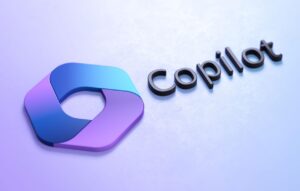The Enterprise resource planning (ERP) system is a basic business software. It is a system that covers all the main tasks and functions for running a business; these include Finance, Inventory Management, Client-orders Processing, Human Resources, and Manufacturing, among many other functions related to Finance and Operations.
When choosing such a system, it is critical to understand which features need to be addressed in order to validate if the system supports them and which is its reach. However, this is not the only thing to take into account. For this reason, we want to share with you the 7 considerations that will help you when choosing the system that will support your company for the years to come:
The first thing to consider when searching for a new ERP system is the size and nature of the business. A small company could benefit from a simple system which is easy to use in mobile devices, while a big company would need a global, scalable and worldwide platform. It is also necessary to analyze how the company is structured: ¿Does it have may branches? ¿Does it operate with more than one currency? Does it distribute products globally? Answering these questions will help determine the type of system needed.
The direction the company is going: if it is a start-up, it may not want a solution that provides for everything, but one that centers on specific areas, as inventory management and processing of sales orders. If you are planning to expand and grow, maybe it would be worth considering a solution that offers more flexibility in terms of scalability since, if a company grows quickly and gets bigger than it is today, you will have to ensure that the solution can manage this growth seamlessly. If it is not the case, it may be possible you have problems to expand it later, and that you face additional costs when updating or changing it completely (what can be extremely expensive).
Tax requirements fulfillment of the countries where the company operates in: It is critical to check if the solution fulfills these requirements and, if they do not natively, it is important to know if there is a solution that could adapt to them. It is also vital to understand how involved is the service vendor or deployer of the solution with the application and the applicable tax regulations. In short, make sure that the software can satisfy the tax requirement of the country or countries it is used in so as to avoid tax and legal problems in the future.
Other things to consider are the aspects related to the system maintenance: ¿Where is the system hosted? ¿Does it need any kind of infrastructure deployment on your side? ¿Is it an On-Cloud or On-Premise solution? The answers to these questions will help you understand which costs and tasks have to be faced recurrently every month and how much responsibility will be necessary for them. While today many systems are 100% cloud-based, it is
important to analyze in detail and validate if the cloud where they are deployed in belongs to the same vendor or it is outsourced, since this will provide important information about the platform where it will be uploading.
Is it vital to understand how the system is marketed. ¿Is it under a SaaS model where the use of the system is the only activity or, on the contrary, is it responsible for matters related to applications, time for execution, operating systems or middleware, among others? You should not underestimate these aspects, since they can have an important impact on cost, efficiency and efficacy of the platform in the long term.
Besides, it is of foremost importance to understand the flexibility the system offers in order to adapt and integrate with other applications (Unfortunately 95% of the companies need them). Although many systems allow for them, it can, often, be done through development, what limits the possibilities, since you will have to have the specific skills that are difficult to find in the market. In some cases, there are extension tools that allow for changes without the need of using code, by means of low-code management. With this, you will be able to reduce costs, move faster and, in the future, solve this type of work without dependance on a provider, without compromising software quality nor increasing deployment costs.
Finally and closely related to 6 above, it is vital to understand how the application integrates with the tools used daily, as the email, the business chat or the spreadsheets or text processing software. If you can find a solution that operates naturally with the tools already used in your work teams daily, you will have the users´ acceptance almost fully guaranteed.
Choosing the right ERP is the key to the long term success of any company. It is important to consider the current and future requirements of the business when choosing the business software solution. Investment in a quality ERP could help companies streamline their business processes, increase their productivity and retain competitivity in a constantly changing market. Thus, it is vital to take all the necessary precautionary measures to fulfill current and future requirements, and ensure that the chosen solution is flexible enough to adapt to the changing needs of the company.
Finally, choosing the right ERP is an strategic decision that could lead to success or failure of a company. In AW we are aware of this and we want to be next to you supporting this process, sharing the options we work with and giving you the necessary help to make the right decision. Our goal is to help you take your company to the next level; and that is only possible with a software solution that is tailored to your needs and goals.






